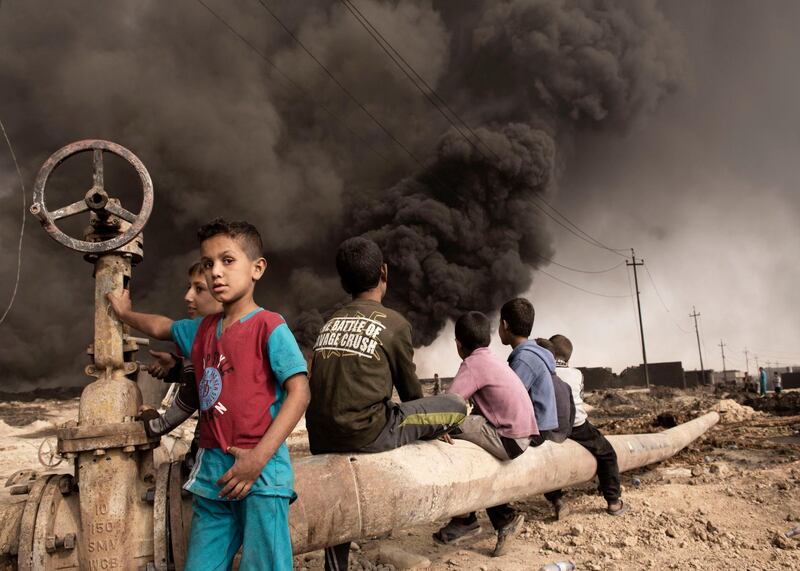Award-winning journalist Francesca Mannocchi and photojournalist Alessio Romenzi were in Iraq covering the offensive in Mosul aimed at retaking the city back from ISIS in 2016, when they asked their translator: "What will happen after the war? Especially in regards to the children?" The translator's reply worried them: "Most probably the Iraqi army will try to kill as many of the kids who have been fighting for ISIS, or who had family members that did."
So the partners who collaborated together on If I Close My Eyes, a documentary about the lost generation of Syrian refugees in Lebanon made for Italian television in 2016, decided to investigate what happens to children who grow up during a war. "We decided to focus on children because in the structure of ISIS – just as it was in Nazi Germany or under Pol Pot in Cambodia, children are the future of the ideology," Mannocchi says. "We believe these children are the arsenal of the movement because they are raised like weapons."
Here is the trailer for the film (with Italian subtitles):
"The international community is obliged and must take care of them," says Mannocchi, who sees the opposite happening in practice. The Italian journalists have witnessed too many wars in Iraq and Syria that have ended with a declaration of victory, a withdrawal, then complete inaction. "They have to reintegrate these children into their own communities – the Iraqis into Iraq and the children of foreign fighters into their own community abroad. It's a real problem now and everybody knows that."
The results of the Italians' investigation can be seen in the documentary, Isis, Tomorrow. The Lost Souls of Mosul, which recently had its world premiere at the Venice Film Festival. Interviews with those who were fighting for both sides in the conflict, and mothers and daughters, are mixed with footage of the war-ravaged city. The filmmakers ask their interviewees questions about their beliefs and hopes for the future.
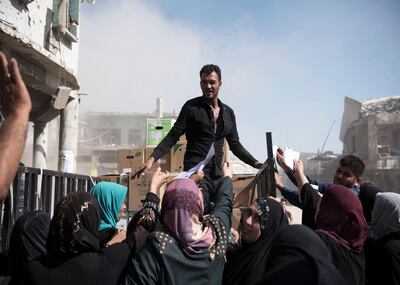
What the filmmakers show is that the children are "ostracised, marginalised, abandoned, mistreated and, in the case of many of the women, abused. Women are abused on a daily basis... and nobody is taking care of this problem."
What will come as a shock to some is that the filmmakers have as much sympathy with those young teenagers who have fought for ISIS as they do for those they interviewed who fought for the emancipation of the city. That perspective comes about because they feel that the failure of duty in post-war Mosul means that anyone can be radicalised.
Mannocchi says: "We are raising the terrorism of tomorrow, not just in ISIS families, but even 'our' side is raising the children of terrorism."
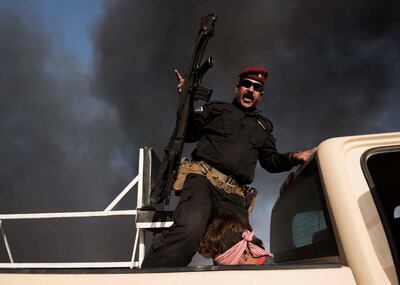
The film starts in January this year, six months after the declaration that the city was free of ISIS control. It then jumps back to 2016. "At the start of the film, we wanted to show the consequences of the war." Mannocchi says. "The city is in ruins. The windows blown from the buildings, those still standing are missing floors and burnt-out. Rubble is everywhere. People live in tents.
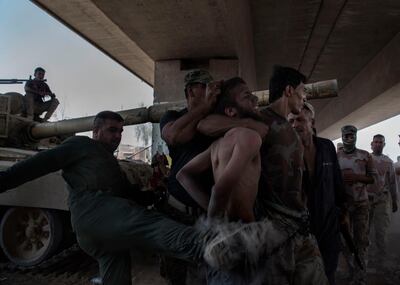
“We show this destruction because everyone heard something about the war in Mosul, or saw footage of the army fighting and were listening when the international community said ISIS were defeated,” Mannocchi adds.
"We wanted in the first minutes to show that you are watching another story. It's the story of revenge, children raised in violence, and we didn't want to distinguish between the children because in a sense they were all raised under the same amount of violence and so everyone under the three-year occupation is the child of ISIS."
The cinematography in the film is at times stunning, even when showing the rubble. Romenzi has found beauty in the ugliness, just as Werner Herzog did when he made Lessons of Darkness in the burning oilfields of Kuwait. "I don't think it's dangerous to make it look beautiful," argues Romenzi, who looks after the technical side of directing. "I think that by having something attractive in the frame helps the viewer focus more and they will comprehend and see more than before."
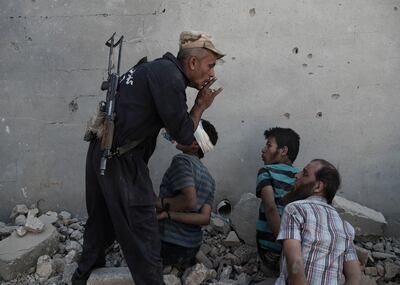
The testimonials on screen are insightful. Getting the subjects to talk openly was the filmmakers’ biggest challenge. “It wasn’t easy at all to get them to speak on camera, above all the women,” Mannocchi says. “They were afraid to suffer from acts of revenge for talking to us. Our goal at the very start was to accept the testimonies without judging them, and I think when they understand that we were with them, and wanted to understand their pain and suffering, because the pain of a mother and child are universal, they were able to speak.”
Mannocchi admits some interviews were harder than others. “Especially with the 16-year-old girl who not only wants to marry a jihadi, but also be the mother of a martyr. That was tough.”
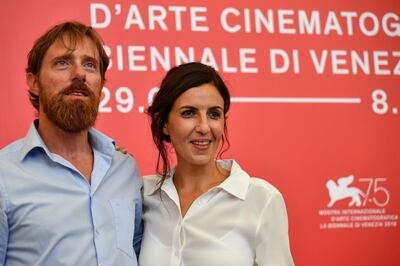
But it's by treating everyone with respect that the filmmakers have ensured that Isis, Tomorrow. The Lost Souls of Mosul is so challenging.
__________________________
Read more:
From Al-Amari Refugee Camp to the Toronto International Film Festival
Syrian cinema wins big at the 2018 Venice Film Festival
Saeed Al Batal on taking the painful footage of Damascus and Douma for ‘Still Recording’
__________________________
